Kids believing in Santa is one of the magical parts about being a parent and is a special time during their childhood. Just like as children do with the tooth fairy or Easter bunny, there comes a point when they outgrow their belief in the magic. If you grew up believing in Santa, you have happy memories of waiting for Saint Nick, but you also remember the moment you found out he wasn’t real. For some, he drifts away, but for others, it is a formative moment to discover the big secret.
Guarding the secret is a stressful parental role, but if you know what age to expect the jig will be up, that may help. Will your kids hear it at school, from an older sibling, a cousin, on TV, or online? Should you safeguard against it or let it happen? We’ll go over at what age kids stop believing in Santa, why they stop, and how to handle it so everyone can make the transition from believing in the magic to being a part of it seamless.
The age kids stop believing in Santa
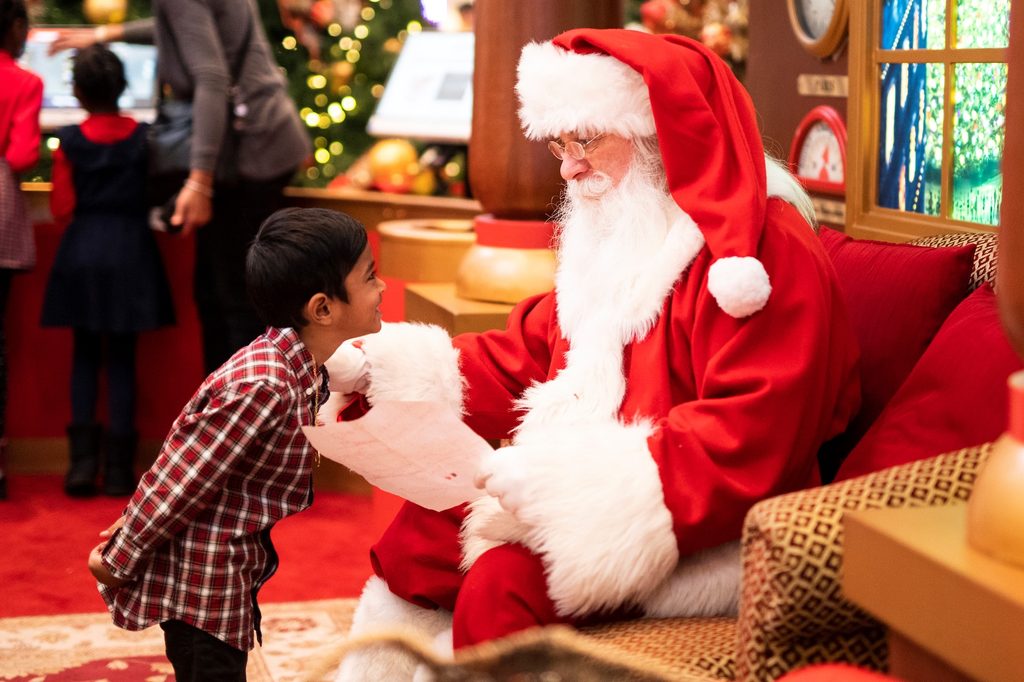
Multiple surveys and studies from the U.S. and around the Western world show the typical age children stop believing in Santa Claus is 8 years old. We know — parents want them to believe for the rest of their lives, but they figure it out.
House Method surveyed over 4,500 American adults in November 2019 and found the average age they stopped believing in Santa Claus was 8.4 years old. Zero to 10% of respondents never believed in Santa, depending on the state they were from. They found the average age varied by state, with the average age in Mississippi being 10.2 years old but 7.4 years old in Oregon.
This age average tracks outside the United States, as well. Psychologist Chris Boyle of the University of Exeter in the United Kingdom received responses from 1,200 people from around the world and found the average children stopped believing in Santa was in line with that eight years old range.
These numbers seem to be steady across the decades, even with the additional availability of information online. A study published in 1978 in the American Journal of Orthopsychiatry found the number of children believing in Jolly Saint Nick sharply dropped off at 8 years old. At age 4, 85% believed, at 6 years old, 65% still believed, and at 8, only 25% still believed. It seems eight is the magic number for letting go of the magic.
Why do kids stop believing in Santa?
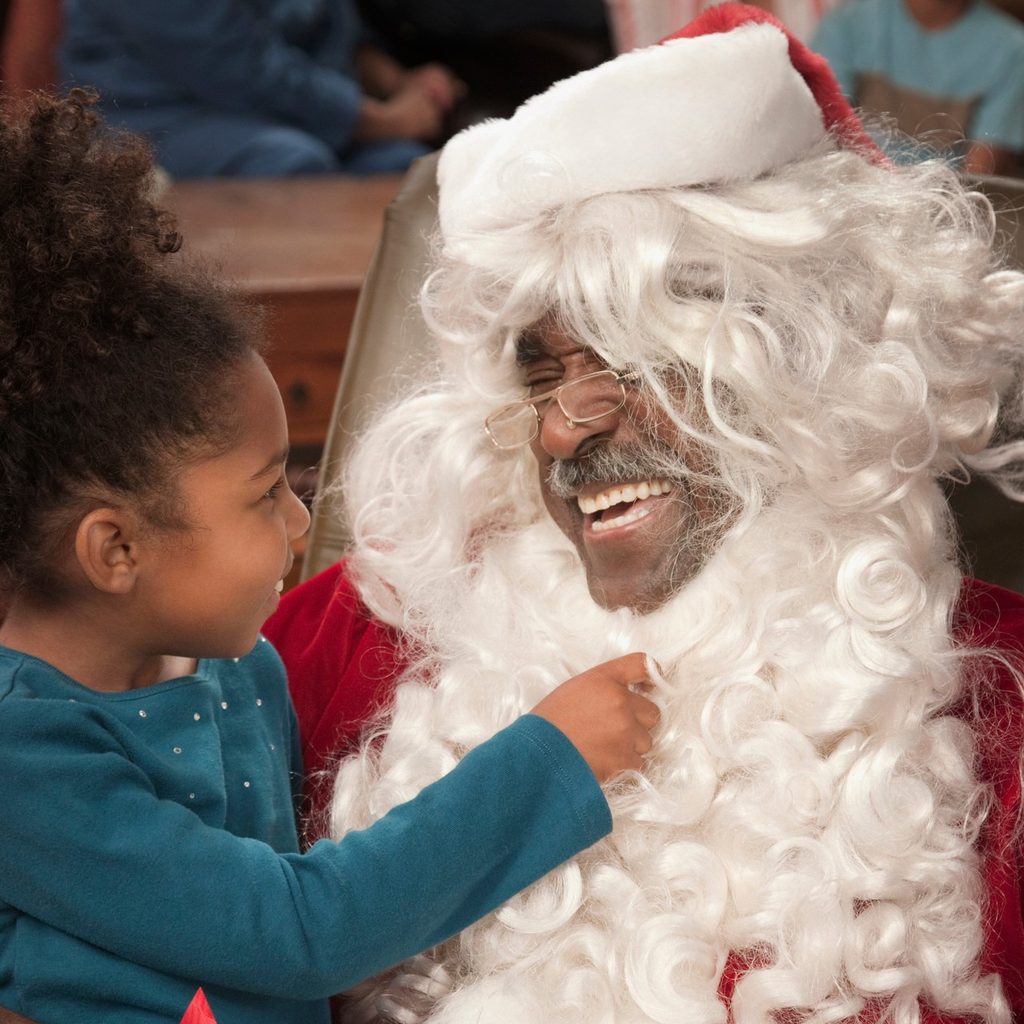
There are common pitfalls that break a child’s belief in Santa. Kids are smart, and parents unknowingly do things to raise suspicion. If you’re trying to extend the time your children participate in the idea of the jolly visitor from the North Pole or make sure they don’t find out at too early of an age, there are common ways the discovery is made you can be aware of as a parent.
Parent oopsies that give it away
- Kids recognize parents’ handwriting on gift tags.
- Children recognize wrapping paper used for other presents or previously seen at home.
- Parents are caught setting up presents or eating Santa’s cookies on Christmas Eve.
- Kids find presents at home (hidden in the closet, delivered to the door, being carried from the car) before Christmas.
- Santa at the mall or otherwise in public, not acting jolly, not knowing a detail, not looking the same as another Santa they met before.
- Google searches. That darn internet isn’t always the hero.
- Seeing online ads for requested gifts.
- Questioning the feasibility of one person making a journey around the world in one night with so much to deliver, how the reindeer fly, how Santa delivers to houses without chimneys, and other unexplainable magic.
- An older child telling them Santa isn’t real.
- Seeing an adult on the news, a movie, or a TV show talk about how Santa isn’t real.
How to handle kids finding out about Santa
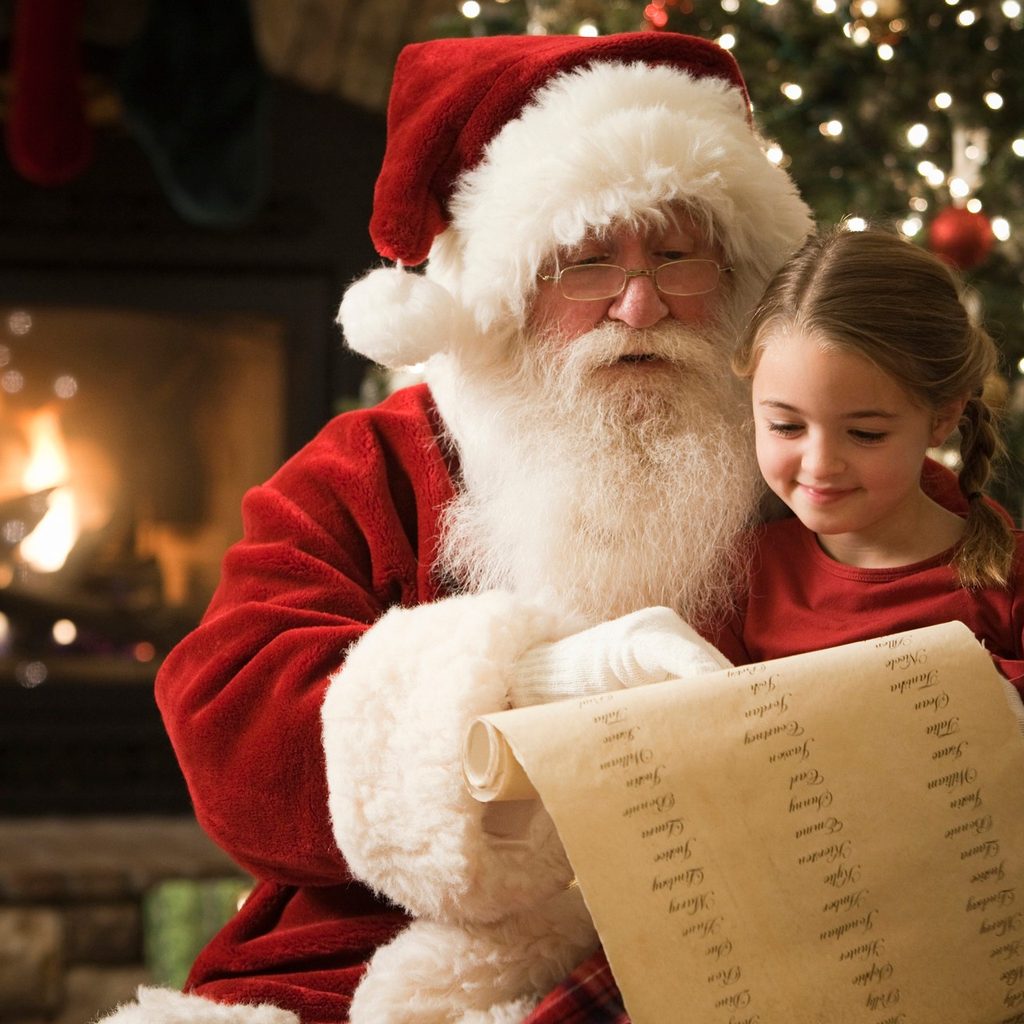
The same British study mentioned above found a third of those surveyed reported feeling upset when they found out Santa isn’t real. On the bright side, that means you have a two out of three chance your child should not even remember feeling upset at the news. That survey also found that two-thirds of children said they continued to play along and pretend Santa was real even after they knew, which is great news for parents with younger children to get the older kids to keep the secret.
A viral Facebook post from 2016 caught on as a popular way of reframing the news not as a lie, broken dream, loss of trust, or destruction of innocence, but instead, as a rite of passage of growing up, joining a cool club, and being part of spreading the Christmas spirit. The mom of this now-famous post writes when a child is six or seven and becoming suspicious, sit them down and tell them you’ve noticed them growing up and they seem ready to become a Santa Claus. Kids who are ready are let into the know and they help deliver the magic of Santa to the younger children. Parents could task these children with choosing a person and delivering a present without getting caught.
Tips for the parents when a child stops believing in Santa
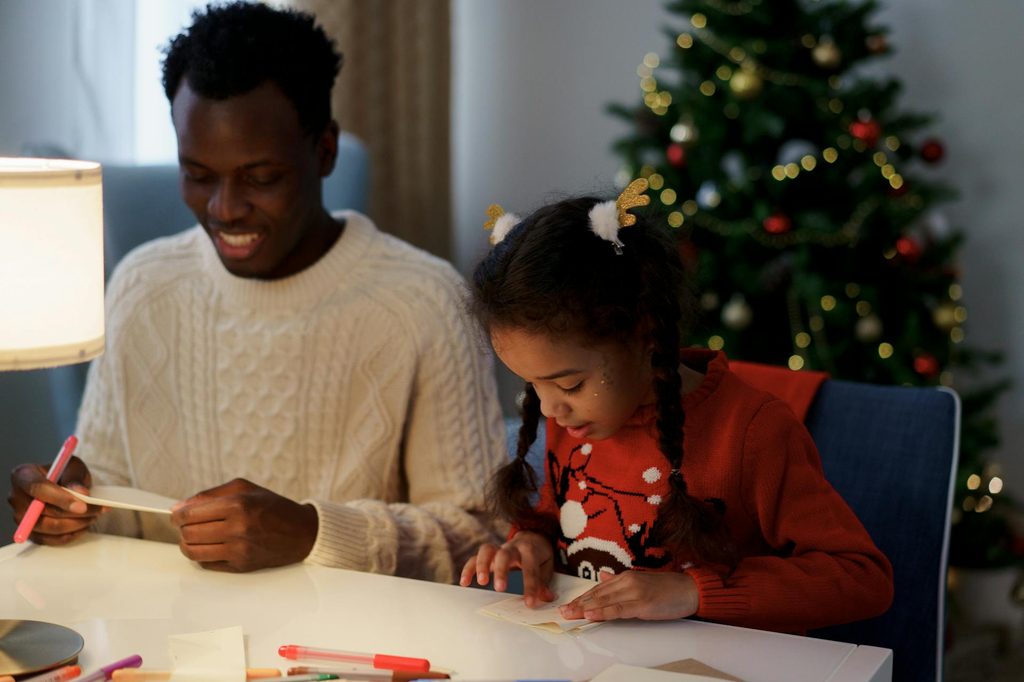
This is an emotional time not only for the children, but for the parents, too. Your child is growing up a little more and that can be hard on the parent. Keep some tips in mind before you have the talk with your child about Santa.
- Don’t get angry at whoever told the child Santa isn’t real.
- Keep your emotions as even as possible when talking to the child about the reality of Santa.
- Talk to your child about respecting younger children and other kids at school.
- Let your child know it doesn’t change your family traditions.
- Talk to your child about how they feel and let them know how grown up they are getting.
- Still involve those children in all holiday traditions.
When a parent finds out their child no longer believes in Santa, it can be easy to get upset and point a finger at the person who told them. We can’t protect our children from everything, and some things kids will find out while out in the real world. Keep a level head and keep all emotions in check before you have the discussion with your child. Your kid will be curious and want to ask questions, but remind them that not all children know the reality of Santa, so it’s time for them to be respectful of younger children and others at their school.
If your child shows signs of feeling upset about it, let them know this doesn’t change your family’s traditions, and you will still celebrate Christmas as you always have. Even having the child write a letter to Santa or leave out cookies and milk — those little traditions will still mean something to your child. Let your child know they should be so proud for finding out and how they handled it, and now they get to celebrate Christmas with a different outlook, and that can be just as interesting.
Decide whether to rip the Band-Aid or keep it going
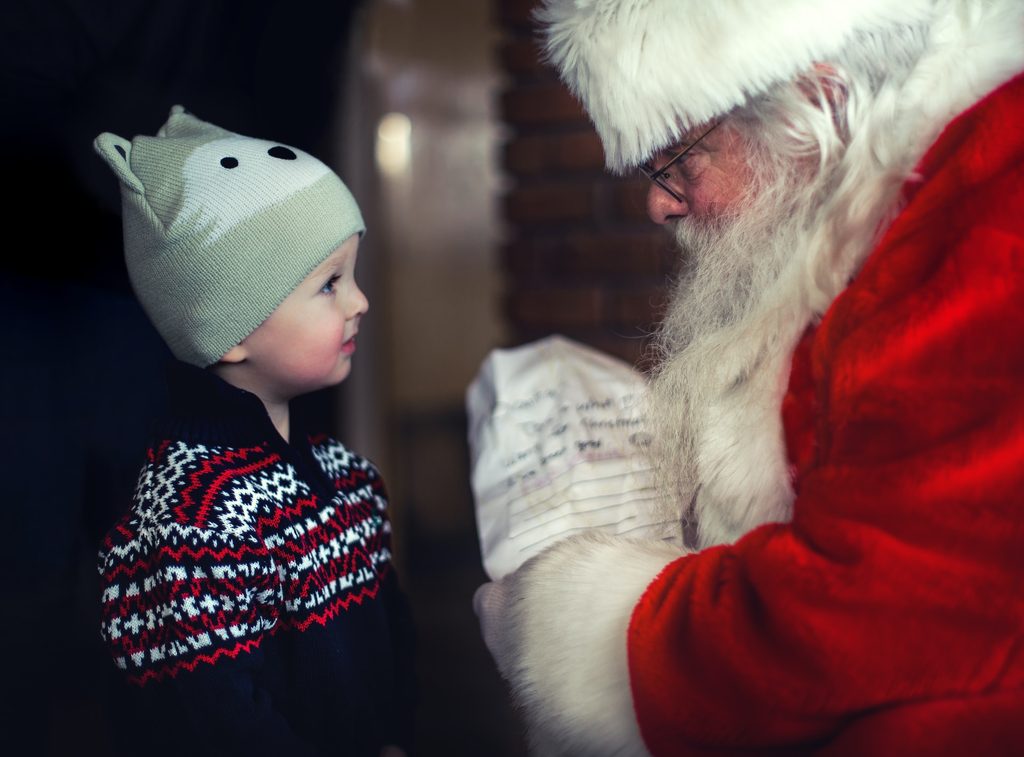
Parents are forced with a choice, and it’s not a fun one. Do you wait for your child to find out from a kid in school Santa isn’t really real, or do you have the talk with them at a certain age? When does a parent decide when to take the magic out of Christmas?
While your kid will be sad to learn Santa is more of a feeling than a person, having the conversation should be child-led. As soon as your child starts giving you the third degree about Santa, magic, elves, and flying reindeer, it’s time. And keep in mind that if you have more than one child, that conversation might happen at completely different ages.
However your child finds out
- Keep the focus on the family traditions for the holiday.
- Don’t lie to your child when they ask you about Santa.
- Validate how they feel about finding out and allow them the space to grieve.
No matter when or how your child transitions out of the phase, the years of wonder at the magic and gifts will stay with them. Only 15% of respondents to the previously mentioned British study said they felt betrayed by their parents when they found out the truth, and if you use the “becoming a Santa” strategy, it could be an even smoother transition.
Like the tooth fairy and the Easter Bunny, your child believing in a little bit of magic should be a fun part of their childhood you get to experience with them. Whether your child is four or nine, if your kids want to believe in Santa, let them believe. Let them be kids for as long as they want to be.




